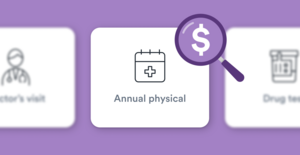Ear Wax Removal
in West Virginia
Own a clinic? Add your location.
Help patients book appointments with you on Solv. It's free!
1 instant-book location

Labcorp
Labcorp

MedExpress Urgent Care, Charleston
MedExpress Urgent Care

MedExpress Urgent Care, Charleston
MedExpress Urgent Care
CAMC Health System
CAMC Health System
Care Center 24
Care Center 24

MedExpress Urgent Care, Charleston
MedExpress Urgent Care
Healthplus Urgent Care Center
Healthplus Urgent Care Center
Teays Urgent Care
Teays Urgent Care

MedExpress Urgent Care, Teays Valley
MedExpress Urgent Care

Walmart, Supercenter
Walmart
Own a clinic? Add your location.
Help patients book appointments with you on Solv. It's free!
West Virginia Ear Wax Removal
Ear wax shields your ears from dirt, bacteria, and other microscopic particles that might irritate your ear canal and cause hearing loss. Too much ear wax, on the other hand, might clog your ear canal and cause hearing loss. Knowing how to remove ear wax in a safe and effective manner can help you protect your hearing and ear health.
About ear wax — why do we have ear wax?
Ear wax is a natural substance that protects your ears by collecting microscopic debris such as dust and bacteria that may otherwise enter and harm them. Ear wax also protects the sensitive skin inside your ear canal from water-related discomfort, according to the National Library of Medicine (NLM).
Ear wax collects dead skin cells, debris, and hair as it flows from the inside of your ears to the outside of the ear canal. Ear wax has antibacterial and antifungal characteristics, according to Harvard Medical School, making it an efficient natural ear cleanser. It goes on to say that if your ears don't create or contain enough ear wax, they'll be itchy and painful.
Treatment of a common ear condition
According to the National Library of Medicine, removing ear wax can help you prevent and avoid hearing loss. Most cases of ear wax buildup, according to the National Library of Medicine, can be treated at home using procedures that soften the wax so it can be readily removed or washed out. It goes on to say that in some cases, you may need to seek medical assistance to avoid hurting your ears or triggering an infection.
Hearing loss caused by ear wax buildup is usually transitory and goes away once the blockage is removed, according to the National Library of Medicine. Hearing loss that persists after removing ear wax should be evaluated and treated by a doctor.
The side effects of excessive ear wax
According to the National Library of Medicine, excessive ear wax can cause ear discomfort and hearing issues. Ear pain, the sense of blocked ears, and tinnitus (inner ear noises) are all frequent adverse effects of ear wax buildup, according to the National Library of Medicine. You may also have a partial hearing loss that worsens with time.
The development of ear wax
Cerumen is another name for ear wax. According to Harvard Medical School, it is a mixture of secretions from sebaceous glands and sweat glands in the outer ear canal's walls.
When you chew or chat with your jaw, the secretions pass through the inner ear canal and into the outer ear canal, where they dry out and flake. According to Harvard Medical School, this permits older ear wax deposits to flow out or be removed more readily from your ears..
Where wax comes from
Ear wax is a natural ear cleanser produced by glands in the ear canal to protect your ears from dangerous dirt and other debris, according to Harvard Medical School. It goes on to say that no one knows why some people have greater ear wax problems than others.
According to the University of Texas at Austin, older people with coarse, wiry hairs in their ears have higher ear wax buildup difficulties than others. Hearing aid users have more ear wax than non-users, owing to the fact that some hearing aids are constructed in such a way that wax cannot readily move out of the ear canal.
Ear wax removal tips
Cotton swabs are commonly used to remove ear wax accumulation. According to UC San Diego, many medical specialists advise against employing this procedure since it can push wax deeper into the ear canal. It goes on to say that the easiest approach to clean your ears is to use wax-softening ear drops, which can be found at almost any pharmacy.
The National Library of Medicine recommends using baby oil or mineral oil to soften ear wax. Once you can see the wax, you can easily remove it from the outer ear canal with a small piece of cloth or tissue wrapped around your finger.
If you're having trouble removing ear wax, the National Library of Medicine suggests seeing a doctor. Other irrigation methods, as well as a curette or suction equipment, can be used by a doctor to eliminate ear wax.
Tips for hearing-aid wearers
The National Library of Medicine recommends that people who use hearing aids have their ear canals examined for extra wax every three to six months. According to Harvard Medical School, ear wax is responsible for 60 percent to 70% of hearing aid degradation. If you use a hearing aid, have your doctor examine your ears at least once every six months for ear wax buildup.
Ear Wax Removal FAQs
What will happen if I don’t clean my ears?
If you don't clean your ears regularly, you may develop an excessive amount of ear wax. The National Institutes of Health lists pain or itching in the ear, ringing in the ear, and a sense that the ear is full or clogged as signs of too much ear wax (NIH). If you do not clean your ears, you may have odor or discharge from the ear, as well as hearing loss, according to the NIH.
Should I do anything to prevent a buildup of ear wax?
You don't need to do anything to keep ear wax from accumulating. However, if ear wax does build up, you should remove it yourself or get it removed by a medical professional to avoid hearing loss and ear discomfort, according to the National Library of Medicine.
What symptoms can be caused by too much ear wax?
According to the National Library of Medicine, too much ear wax can produce symptoms such as earache, fullness in the ear, tinnitus, and partial hearing loss.
Does it hurt to remove ear wax?
Ear cleaning procedures for removing ear wax should not be painful. If you're having trouble eliminating ear wax, the National Library of Medicine suggests consulting a medical practitioner for assistance
If ear wax is removed, will my hearing improve?
According to the National Library of Medicine, if the ear wax obstruction is cleared, your hearing will usually return entirely. Ear wax buildup usually causes transient hearing loss that lasts until your ears are cleaned.
How often should I remove wax from my ears?
Your ear wax should naturally come out when your body no longer requires it, according to the National Institutes of Health. It goes on to say that you should only clean your ears if you have symptoms of too much ear wax or if you can see wax near the end of the ear canal.
Is removing ear wax costly?
According to the National Institutes of Health, the cost of removing ear wax varies depending on the method used. Based on your budget and income, your healthcare professional may be able to propose the best ear wax removal procedure for you.
Do cotton swabs remove wax from the ear?
Where can I get ear wax removed in West Virginia?
Your primary care physician or a specialist who specializes in ear, nose, and throat health can remove ear wax. To find nearby providers of this service, use Solv to find an ear wax removal service and book an appointment for the same-day or next-day.

Updated on Jan 25, 2025
Solv has strict sourcing guidelines and relies on peer-reviewed studies, academic research institutions, and medical associations. We avoid using tertiary references.
Related searches
DOT Exam in West Virginia
Ear Wax Removal in West Virginia
Physical Exam in West Virginia
Sports Physicals in West Virginia
A1C Test in West Virginia
Basic Metabolic Panel in West Virginia
Blood Test in West Virginia
CMP Test in West Virginia
COVID-19 Antibody Test in West Virginia
Cholesterol Test in West Virginia
Diabetes Test in West Virginia
Diagnostic Test in West Virginia
Drug Test in West Virginia
Glucose Test in West Virginia
Hepatitis test in West Virginia
Mono Test in West Virginia
RSV Test in West Virginia
STD Testing in West Virginia
Strep Test in West Virginia
TB Test in West Virginia
Urinalysis in West Virginia
Vitamin D Test in West Virginia
Everyday Healthcare, Simplified
Expert advice to help you live your best life



